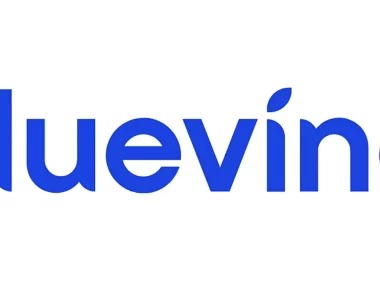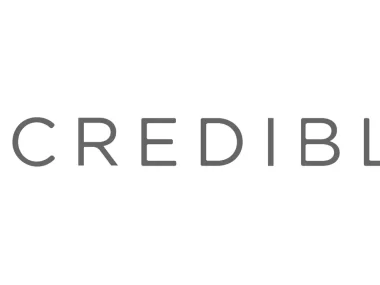Obtaining a personal loan without a co-signer is a significant financial milestone for many individuals. It represents not only access to credit but also a level of financial independence and responsibility. To achieve this goal, borrowers must navigate a complex landscape of lending criteria and creditworthiness assessments. In this comprehensive guide, we will delve deeply into how personal loans can be granted without a co-signer, exploring each aspect in detail and offering valuable insights to empower borrowers in their financial journey.
1. Excellent Credit Score:
A fundamental pillar in securing a personal loan without a co-signer is the possession of an excellent credit score. Credit scores, typically ranging from 300 to 850 in the United States, serve as a barometer of a borrower’s creditworthiness. A credit score above 700 is generally considered good, and scores in the 800s are deemed excellent. Borrowers with high credit scores are perceived as lower credit risks, increasing the likelihood of loan approval without the need for a co-signer.
2. Sustained and Adequate Income:
Lenders prioritize borrowers who can demonstrate a reliable source of income capable of comfortably servicing the loan. A steady job, consistent income from investments, rental properties, or other sources all bolster the borrower’s application for approval without a co-signer. Lenders often verify income through pay stubs, tax returns, or bank statements to ensure its stability.
3. The Crucial Debt-to-Income Ratio (DTI):
The debt-to-income ratio is a pivotal metric in the lender’s assessment process. This ratio is calculated by dividing the borrower’s monthly debt obligations by their monthly income. A lower DTI ratio is favored by lenders because it signifies that the borrower has more disposable income available to meet loan payments.
4. The Power of a Positive Credit History:
In addition to the credit score, lenders scrutinize the borrower’s credit history. A positive credit history showcases a track record of making timely payments on existing debts. Such a history significantly strengthens the borrower’s case for approval without a co-signer.
5. Contemplating Loan Amounts:
The loan amount requested by the borrower can sway the lender’s stance on co-signers. Smaller loan amounts are generally considered less risky, increasing the likelihood of approval without a co-signer. Larger loans, on the other hand, represent a greater risk to the lender, often resulting in stricter eligibility criteria or collateral requirements.
6. The Influence of Lender Policies:
Different lenders adhere to varying underwriting standards and risk tolerance levels. Some lenders are known for their flexible lending criteria, making them more amenable to approving loans without co-signers. Others may be more conservative in their approach.
7. The Significance of Collateral:
Certain personal loans can be secured with collateral, such as a vehicle, savings account, or certificate of deposit. Secured loans pose less risk to lenders because they can recoup their losses by seizing the collateral in the event of a default. Consequently, opting for a secured loan can increase the chances of approval without a co-signer.
8. The World of Alternative Data:
In some instances, lenders may turn to alternative data sources to assess the creditworthiness of borrowers who possess limited traditional credit history. These alternative sources could include rental payment history, utility bill payments, or other non-traditional data points.
9. The Role of an Established Relationship with the Lender:
Existing customers who have maintained a positive history with a particular lender may find it easier to secure a personal loan without a co-signer. Lenders are often more willing to extend credit to borrowers who have demonstrated financial responsibility and a history of timely repayments.
10. The Art of Financial Responsibility and Patience:
For borrowers who currently fall short of meeting the criteria for a personal loan without a co-signer, focusing on improving their financial situation over time is paramount. This may entail paying down existing debts, diligently building a positive credit history, and incrementally increasing their credit score. While this process may necessitate patience, the rewards in terms of better loan terms and the ability to obtain a loan without a co-signer in the future are well worth the effort.
11. The Merits of Credit Counseling:
In instances where a borrower’s credit score or financial situation presents challenges, seeking credit counseling can be a prudent step. Credit counselors possess expertise in helping individuals manage their debt, enhance their credit, and achieve their financial goals.
12. The Need for Comparison Shopping:
Borrowers should take the time to explore multiple lenders and thoroughly compare their loan offers. Each lender maintains unique criteria and interest rates, and conducting due diligence in this manner can help borrowers discover the lender that aligns best with their financial situation. This can significantly enhance their chances of securing a personal loan without a co-signer.
13. The Long-Term Benefits of Financial Education: Equipping oneself with financial knowledge and literacy can be instrumental in making informed decisions regarding credit management and financial planning. Many educational resources and courses are available to help individuals strengthen their financial acumen.
14. The Role of Emergency Funds: Building and maintaining an emergency fund can serve as a financial safety net. Lenders may view borrowers with accessible emergency funds as more financially responsible and less likely to default on loans.
15. The Importance of Diversified Credit: A well-rounded credit profile that includes various types of credit (e.g., credit cards, installment loans, and mortgages) can enhance a borrower’s creditworthiness. Responsible management of different credit types can be advantageous.
16. The Value of Professional Advice: Consultation with financial advisors or loan officers can provide valuable insights and guidance tailored to an individual’s unique financial situation and goals.
17. The Reward of Financial Discipline: Maintaining financial discipline in budgeting, saving, and spending is a foundational element of achieving and sustaining financial stability and success.
In summary, securing a personal loan without a co-signer is a multi-faceted endeavor that demands a holistic approach to financial management. Factors such as a high credit score, stable income, a low DTI ratio, and a positive credit history all play pivotal roles in this process. Additionally, loan amount considerations, familiarity with the lender’s policies, collateral choices, and the exploration of alternative data sources are key components of the journey toward loan approval without a co-signer.
Furthermore, maintaining financial responsibility and exercising patience are essential virtues in the path to financial empowerment. Credit counseling can be a valuable resource for those facing challenges, while comparison shopping among lenders allows borrowers to find the most favorable terms for their unique circumstances.
Ultimately, obtaining a personal loan without a co-signer is an attainable goal through diligent financial management, meeting lender-specific eligibility criteria, and leveraging the various tools and resources available to borrowers.










